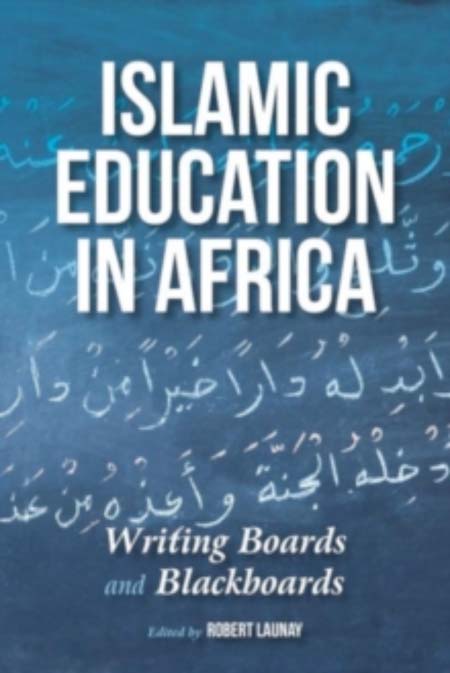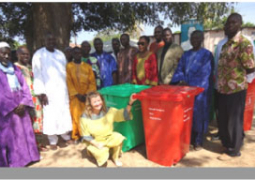
This
is an academic text which comprises 15 chapters written by noted historians and
theologians, all of them revisiting how Islam is taught in West Africa.
Writing
boards and blackboards are emblematic of two radically different styles of
education in Islam. The essays in this lively volume address various aspects of
the expanding and evolving range of educational choices available to Muslims in
sub-Saharan Africa. Contributors from the United States, Europe, and Africa
evaluate classical Islamic education in Africa from colonial times to the
present, including changes in pedagogical methods: from sitting to standing,
from individual to collective learning, from recitation to analysis.
Also
discussed are the differences between British, French, Belgian, and Portuguese
education in Africa and between mission schools and Qur’anic schools; changes
to the classical Islamic curriculum; the changing intent of Islamic education;
the modernization of pedagogical styles and tools; hybrid forms of religious
and secular education; the inclusion of women in Qur’anic schools; and the
changing notion of what it means to be an educated person in Africa. A new view
of the role of Islamic education, especially its politics and controversies in
today’s age of terrorism, emerges from this broadly comparative volume.
My
favourite essay is chapter 2 titled ‘Styles of Islamic Education in Mali,
Guinea and Gambia’ by Tal Tamari, professor at the prestigious CNRS in Paris,
and a keen and accomplished researcher on Islamic education in The Gambia. Here
the author recognizes the diversity in the styles of teaching Islam in the three
countries. The author identifies the variations in school schedules and
holidays, For example, she relates that whilst in The Gambia the daara classes
start just before sunrise, the talibes break ‘for the dawn prayers and
breakfast’ (p.34) and then resume to read their lessons till afternoon. But in
Mali and Guinea, she observed that the daaras hold classes in the morning from
shortly after sunrise until about noon, and then again just after the 2 pm prayers. Another interesting
observation about the daaras or Islamic schools is that they generally break
off from lessons from Wednesday afternoons through to Friday evenings. Meaning
Thursdays are never school days as it is seen as ‘unblessed’(p.35). The author
tries to give reasons that seem to influence the calendar including the
priorities imposed by the farming season when the labour of the talibes is
highly needed.
Significantly,
the author explains on pages 36-40 that
Islamic education is incremental in that one starts from and has to move from
an elementary stage, to an intermediate stage until ‘advanced study’. In every
stage the age of the learner matters, so does the depth and scope of the level
of memorization of the Koranic suras or verses. Near the end of this very
readable chapter, the author explores the contentious issue of ‘is Islamic
Daara education economically exploitative?’ (p.49). Here I am sure the author
is alluding to the almudo or children beggars who roam the streets of towns
like Dakar sent out to collect gifts by their Koranic masters. The authors says
that for the teachers, there is no exploitation because the children eat what
they beg.
Another
chapter worth reading is chapter 14 which profiles ‘New Muslim Public Figures
in West Africa’ where the role of new age Muslim scholars like the
controversial Senegal scholar turned journalist Sidy Lamine Niasse is studied.
The very short biographical sketch of Sidy will interest any reader familiar
with his regular outbursts in his Walf TV or in his columns in his Walf
Newspaper published in Dakar since 1984.
The
chapter from page 173 by the Senegal historian Cheick Anta Babou on the Murid
brotherhood in Senegal is also quite revealing and well written.
As
I said at the beginning, this is an academic book. Ordinary readers might find
it a hard nut to crack. It is therefore, highly recommended for under-graduate
and graduate students interested in the history of Islamic education in Africa,
and Gambia in particular.
Available
at Timbooktoo, tel 4494345.


